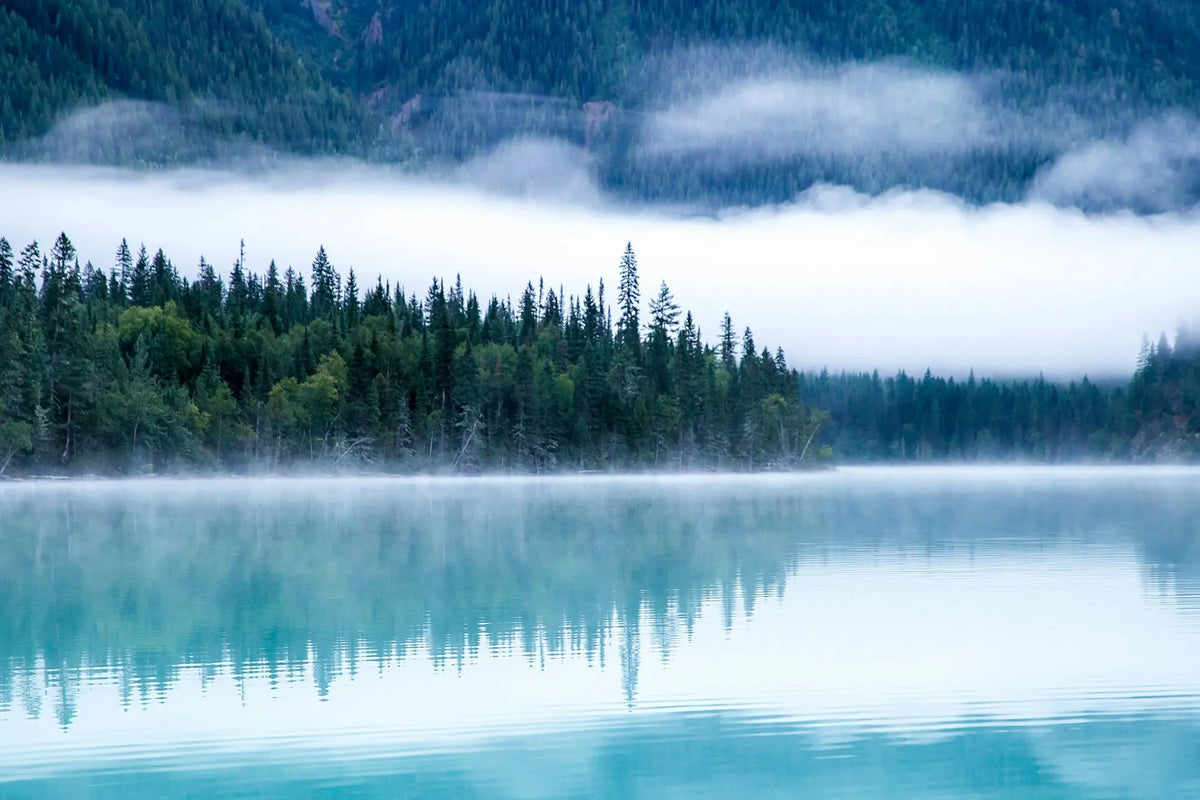
The Surprising Sleep Benefits of Time in Nature
|
Time to read 3 min
This store requires javascript to be enabled for some features to work correctly.
Written by: Nina Clark
|
Time to read 3 min
In today’s fast-paced world, getting enough quality sleep can feel like an elusive goal. Many of us turn to sleep aids, gadgets, or other interventions to improve our rest, but actually, one of the most natural and effective remedies for a better snooze might be right outside your front door. Introducing: nature. Spending time outdoors and moving your body (preferably in said outdoors) can significantly improve your ability to fall asleep faster and achieve deeper, more restful sleep. Here’s how:
One of the primary ways spending time outdoors can improve sleep is by exposing you to natural light, which plays a crucial role in regulating your circadian rhythm. The circadian rhythm is your body’s internal clock that tells you when it’s time to be awake and when it’s time to sleep.
Natural light, particularly morning sunlight, helps reset this clock by encouraging the production of cortisol, the hormone that keeps you alert during the day. As the day progresses and sunlight fades, your body begins to produce melatonin, the hormone that makes you feel sleepy. Regular exposure to natural light during the day helps align your circadian rhythm, making it easier to fall asleep at night and wake up feeling refreshed.
A major sleep disruptor is stress, which can keep your mind racing and your body tense long after you’ve tried to settle in for the night. Spending time outdoors has been shown to have a calming effect on the mind and body, reducing stress levels and promoting relaxation.
Research suggests that being in green spaces, such as parks, forests, or gardens, can significantly lower cortisol levels (the stress hormone) and decrease anxiety. This reduction in stress and anxiety makes it easier to unwind in the evening, leading to faster sleep onset and fewer nighttime wake-ups.
Engaging in outdoor exercise / movement, whether it’s hiking, walking, cycling, or playing sports, has a direct impact on sleep quality. Exercise tires out the body, increasing the need for rest and recovery. Regular physical activity can help you fall asleep faster, increase the amount of deep sleep you get, and reduce the number of times you wake up during the night.
Additionally, outdoor exercise has the benefit of exposing you to fresh air and sunlight, creating a cycle that helps regulate your sleep-wake cycle and lowers stress, further promoting restful sleep.
The fresh air you breathe when spending time outdoors can also positively influence your sleep. Fresh air contains higher levels of oxygen, which helps improve brain function, reduce feelings of fatigue, and promotes overall well-being. This combination of fresh air and green surroundings helps reduce the mental clutter that often prevents people from falling asleep quickly.
Additionally, outdoor environments often have fewer artificial lights and distractions, allowing you to disconnect and mentally recharge, which can make for a more peaceful transition to sleep when you’re back at home.
Spending time in nature has been linked to improved mental health, including a reduction in symptoms of depression and anxiety – because spending time outside offers a break from the overstimulation of modern life, allowing your brain to rest and recover. Improved mental well-being is so critical when it comes to sleep quality, because poor mental health can interfere with your ability to fall asleep and stay asleep.
We are constantly surrounded by technology and artificial light, both of which can interfere with sleep. Spending time outdoors gives you an opportunity to step away from screens. Screens emit blue light that can suppress melatonin production, so reducing screen time before bed by engaging in outdoor activities is a super simple way to prepare your mind and body for sleep.
If you struggle with falling asleep or staying asleep, embrace nature as part of your sleep strategy. Whether it’s a daily walk in the park, a weekend hike, or simply spending a few minutes outside in your backyard, the benefits of time spent in nature are clear: better sleep, a more regulated internal clock, reduced stress, and improved mental health. It’s time to get outside, soak up the sun, breathe in the fresh air, and let nature work its magic on your sleep.
Receive 10% off your first order when you subscribe to our newsletter


